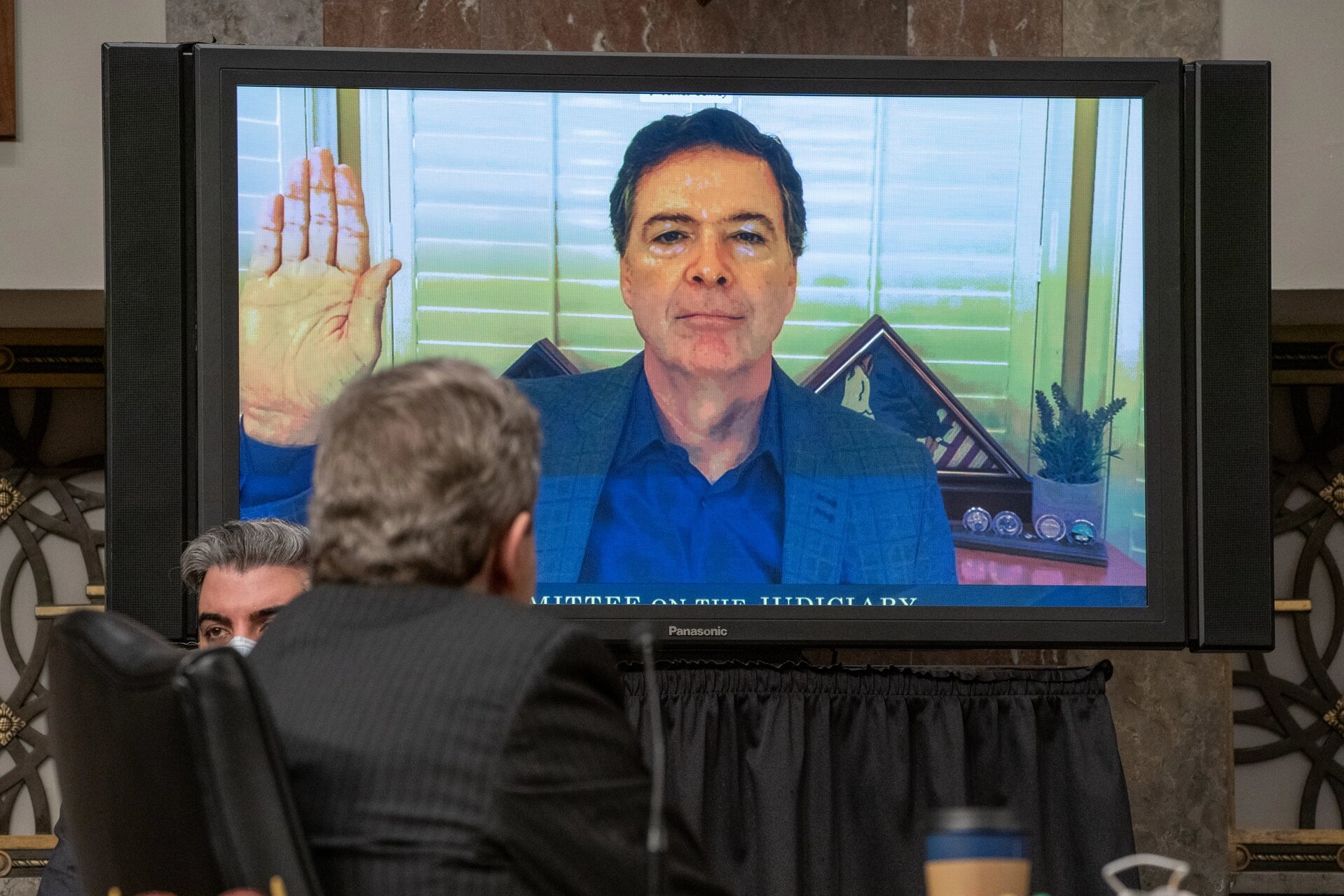A federal magistrate judge questioned whether privileged material was improperly obtained and used.

ALEXANDRIA, Virginia — A federal magistrate judge scolded Justice Department prosecutors on Wednesday for an “indict first, investigate second” posture in the criminal case against former FBI Director James Comey, raising new questions about a “highly unusual” case that was ordered up at President Donald Trump’s command.
Magistrate Judge William Fitzpatrick raised his concerns at a hearing to resolve questions about how prosecutors were handling evidence against Comey, who is facing a two-count indictment for allegedly lying to Congress in 2020 about the FBI’s investigation into Trump’s contacts with Russia.
The indictment was engineered by Trump in September after he demanded that Attorney General Pam Bondi bring immediate prosecutions of his political adversaries. He pressed her to appoint his former personal lawyer Lindsey Halligan to a key federal prosecuting office in Virginia.
Halligan, who was seated at the Justice Department’s table Wednesday, personally secured the indictment against Comey several days later.
Halligan’s unusual role — singlehandedly presenting to the grand jury and securing the indictment without support of career prosecutors – has drawn significant scrutiny. It has formed the basis of Comey’s effort to sink the indictment by labeling it a “vindictive” prosecution meant to satisfy Trump’s vendetta.
Comey was seated quietly alongside his attorneys during the 50-minute hearing with his wife and son-in-law, former federal prosecutor Troy Edwards, Jr., in the public gallery directly behind him. The hearing drew a much sparser crowd than Comey’s arraignment last month, when he made his first appearance in the case and pleaded not guilty to the two charges.
Fitzpatrick’s concerns stemmed from prosecutors’ handling of materials seized through four search warrants issued against Comey associate Daniel Richman in 2019 and 2020, when the FBI’s handling of the Russia probe was first scrutinized by investigators. Richman advised Comey at the FBI until Comey was fired by Trump in May 2017.
Comey’s attorneys say the seized materials may include privileged information — in part because Richman was his lawyer at one time — that he has not had a chance to review.
Fitzpatrick vented frustration at the Justice Department’s inability to characterize how it had handled the search warrant materials, both during the original review of the Russia probe and its more recent effort to charge Comey. He ordered prosecutors to turn over all of it to Comey’s defense lawyers by close of business Thursday.
Fitzpatrick also demanded that DOJ simultaneously provide Comey all records of the grand jury proceedings that led to his indictment, so he can determine if any potentially privileged information was used to secure the charges.
“They’re entitled to this information quickly,” Fitzpatrick said.
Tyler Lemons, an assistant U.S. attorney brought in from North Carolina to assist Halligan with the case, responded to the judge. He said investigators reviewing the search warrant materials anew just days before Comey’s indictment halted the process after stumbling upon information they thought might have been subject to Comey’s attorney-client privilege with Richman. He said the materials are now “isolated on a desk in FBI headquarters.”
Lemons added, “We’re not going to touch this evidence until the court approves it.”
The magistrate judge said prosecutors are not permitted to look at the material themselves until the court has resolved any potential privilege claims. He said that prosecutors could continue to use evidence it believes is not privileged in court filings, but that they do so “at their own risk.” If they inadvertently use privileged material in their filings, he said, it could lead to consequences for the entire case.
Fitzpatrick isn’t the only jurist looking skeptically at the government’s case against Comey.
U.S. District Judge Cameron Currie has similarly ordered prosecutors to provide her with transcripts of Halligan’s grand jury appearance as she weighs whether the Trump-picked prosecutor was invalidly appointed — a decision that could sink the case altogether. U.S. District Judge Michael Nachmanoff, who would preside over a potential trial scheduled for early January, has emphasized his intention to move the case ahead quickly.
Comey’s attorneys, including former federal prosecutor Patrick Fitzgerald, said they intend to stick to the expedited trial schedule despite challenges combing through massive troves of evidence. That evidence includes reams of classified information that Fitzgerald said he has not been able to review because of a delay in obtaining a security clearance.
